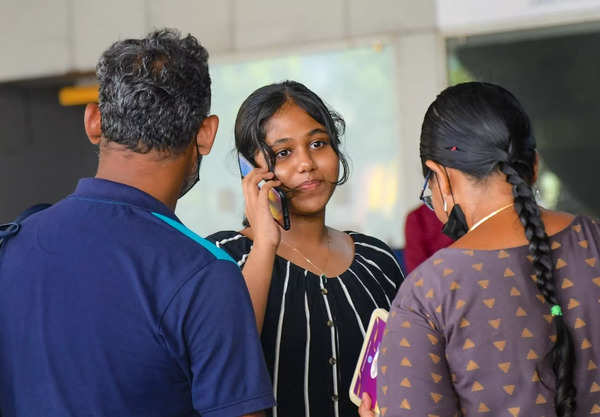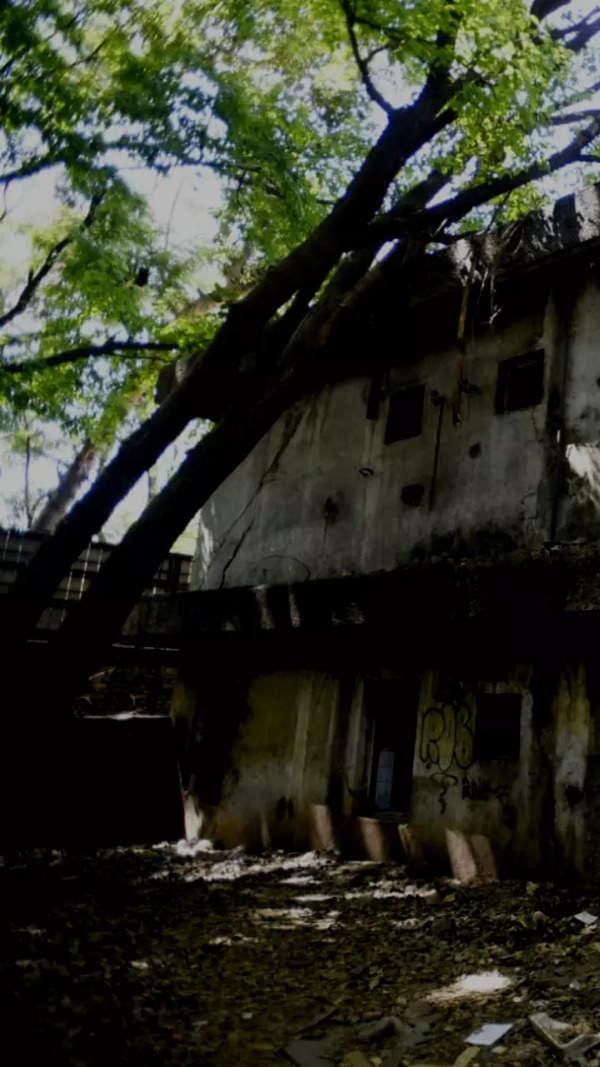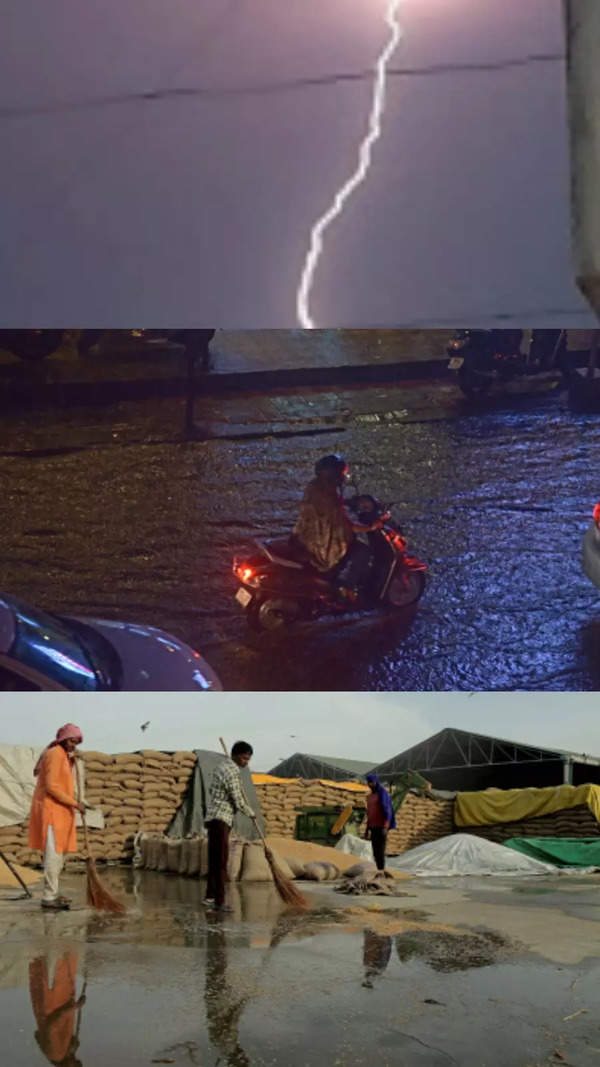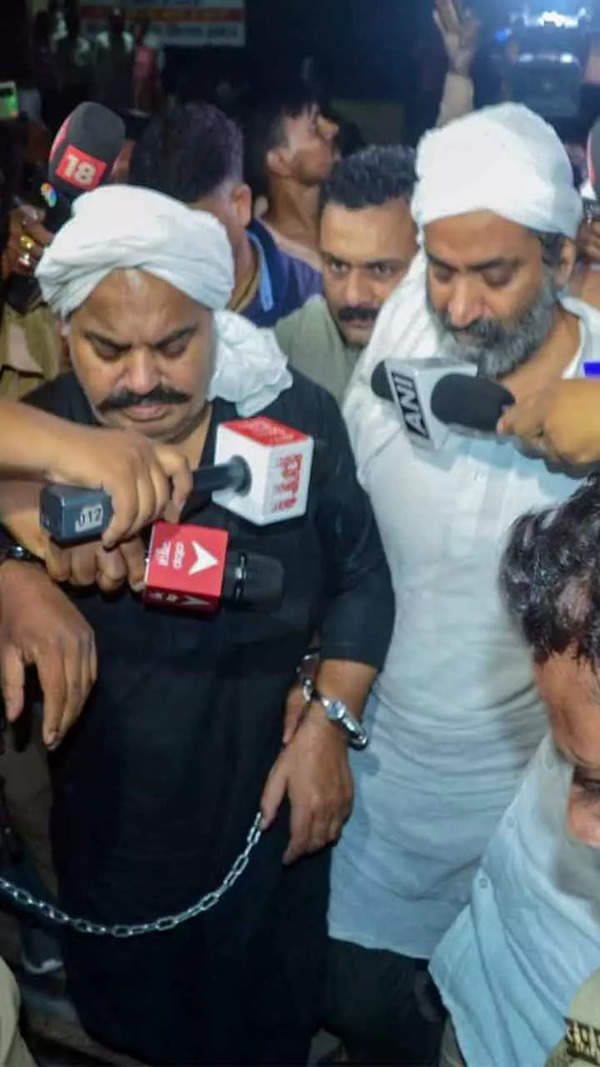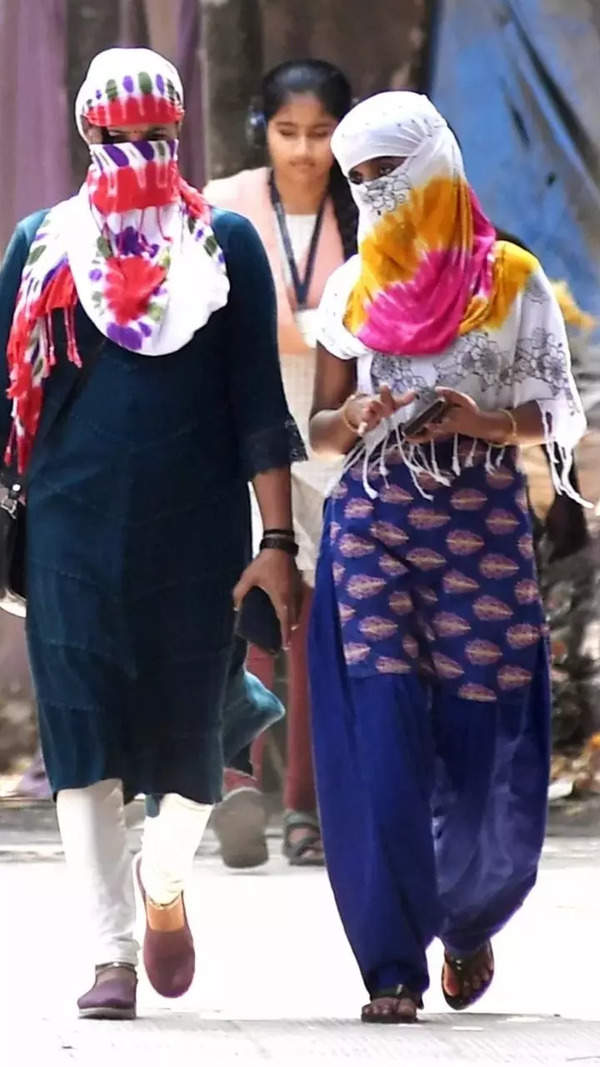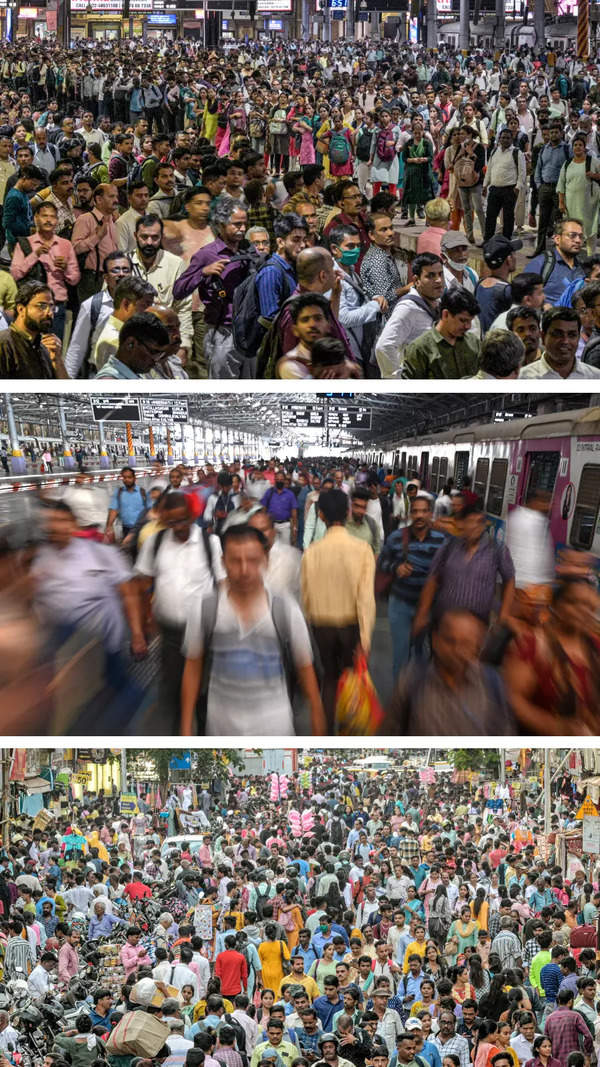- News
- City News
- delhi News
- How Delhi University's reliance on ad hoc system has sparked a crisis
Trending Topics
How Delhi University's reliance on ad hoc system has sparked a crisis
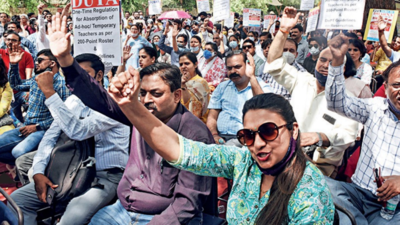
Ad hoc teachers of DU during a protest
NEW DELHI: The ad hoc teachers' crisis at Delhi University has been brewing for quite some time. Introduced as a provision to tackle sudden and short vacancies in the departments and colleges and with interviews for regular faculty appointments not being held for an extended period, the colleges continued with the ad hoc teachers, which over time created a large pool of the non-permanent teachers within the university system.
According to a 2007 resolution of DU's Executive Council, ad hoc appointments were to be made against vacancies for a period of more than one month but less than 120 days. The resolution was based on a report submitted by a committee and read, "In case there is a sudden, unexpected and short vacancy arising out of a sudden sickness or death on medical grounds (including maternity leave), abrupt leave or any other situation that may disrupt the normal process of teaching-learning, an ad hoc appointment may be made."
The committee also recommended that whenever the vacancy was of four months, it would have to be filled up temporarily by a selection committee. However, ad hoc teachers have had their services renewed every four months and some have been engaged with the university over a decade.
Rajesh Jha, former Executive Council member, explained, "Earlier there was a provision for appointments against temporary positions where the hired teacher would get all the other perks of a regular teacher. However, over time this provision was phased out and the ad hoc system became dominant. Under this, the teachers receive no social benefits or leaves. What colleges usually do is that at the end of the four month period, they give the teachers' a day's break and then renew the term of service."
A former university official said, "When the OBC reservations were announced, around 4,000 teaching positions were sanctioned overnight. Some appointments were made for a brief period, but these stopped after 2015. With not a single post filled over the next five-six years, a concentration of ad hoc teachers was created in DU."
Many teachers contended that this was a fallout of the government not wanting to invest in higher education because ad hoc teachers are not entitled to medical benefits or pension, gratuity and leaves.
An ad hoc teacher who lost her job recently said that it was easier for institutions to "throw out" ad hoc teachers. "Despite having the same workload as a regular teacher and working with equal dedication for over a decade, I am left with nothing," the teacher said. "We can't even claim any money from the authorities because we aren't entitled to them in the first place."
According to registrar Vikas Gupta, DU currently has around 5,000 vacancies for faculty positions. Recruitment interviews began in April last year. Gupta said that in the past year, around 2,000 vacancies had been filled. "While interviews for regular positions did not take place in the university for a long time, vice-chancellor Yogesh Singh has initiated the process as he intends to ensure that all the positions are filled," maintained Gupta.
Commenting on the displacement of the ad hoc teachers, the principal of a North Campus college wondered how someone who was teaching for 15 years suddenly be asked to leave. "However, in several instances there are certain manipulations taking place and in many cases it's not like the ad hoc teachers are being replaced by better teachers," the principal confided. "While 100% retention is not possible, the college principals should try their best to retain the ad hoc teachers."
According to a 2007 resolution of DU's Executive Council, ad hoc appointments were to be made against vacancies for a period of more than one month but less than 120 days. The resolution was based on a report submitted by a committee and read, "In case there is a sudden, unexpected and short vacancy arising out of a sudden sickness or death on medical grounds (including maternity leave), abrupt leave or any other situation that may disrupt the normal process of teaching-learning, an ad hoc appointment may be made."
The committee also recommended that whenever the vacancy was of four months, it would have to be filled up temporarily by a selection committee. However, ad hoc teachers have had their services renewed every four months and some have been engaged with the university over a decade.
Rajesh Jha, former Executive Council member, explained, "Earlier there was a provision for appointments against temporary positions where the hired teacher would get all the other perks of a regular teacher. However, over time this provision was phased out and the ad hoc system became dominant. Under this, the teachers receive no social benefits or leaves. What colleges usually do is that at the end of the four month period, they give the teachers' a day's break and then renew the term of service."
A former university official said, "When the OBC reservations were announced, around 4,000 teaching positions were sanctioned overnight. Some appointments were made for a brief period, but these stopped after 2015. With not a single post filled over the next five-six years, a concentration of ad hoc teachers was created in DU."
Many teachers contended that this was a fallout of the government not wanting to invest in higher education because ad hoc teachers are not entitled to medical benefits or pension, gratuity and leaves.
An ad hoc teacher who lost her job recently said that it was easier for institutions to "throw out" ad hoc teachers. "Despite having the same workload as a regular teacher and working with equal dedication for over a decade, I am left with nothing," the teacher said. "We can't even claim any money from the authorities because we aren't entitled to them in the first place."
According to registrar Vikas Gupta, DU currently has around 5,000 vacancies for faculty positions. Recruitment interviews began in April last year. Gupta said that in the past year, around 2,000 vacancies had been filled. "While interviews for regular positions did not take place in the university for a long time, vice-chancellor Yogesh Singh has initiated the process as he intends to ensure that all the positions are filled," maintained Gupta.
Commenting on the displacement of the ad hoc teachers, the principal of a North Campus college wondered how someone who was teaching for 15 years suddenly be asked to leave. "However, in several instances there are certain manipulations taking place and in many cases it's not like the ad hoc teachers are being replaced by better teachers," the principal confided. "While 100% retention is not possible, the college principals should try their best to retain the ad hoc teachers."

About the Author
Shinjini GhoshShinjini Ghosh is an education reporter at Times of India, Delhi. Apart from covering higher educational institutions, she also covers a range of feature stories. She has done her bachelors in Sociology from Miranda House and master’s in Sociology from Delhi School of Economics, Delhi University.
Start a Conversation
FOLLOW US ON SOCIAL MEDIA
FacebookTwitterInstagramKOO APPYOUTUBE

